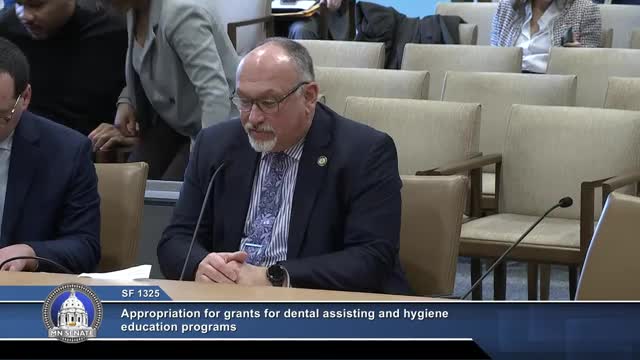Sen. Kupek seeks $15M to expand dental assisting and hygiene program capacity
Get AI-powered insights, summaries, and transcripts
Subscribe
Summary
Sen. Kupek introduced a bill to create grants for dental assisting and dental hygiene schools to expand capacity, equipment and faculty; stakeholders told the committee programs are at maximum enrollment and the request was laid over for possible inclusion.
Sen. Kupek told the Senate Jobs and Economic Development Committee on Feb. 17 that Minnesota faces a shortage of dental assistants and dental hygienists and that school capacity is constraining workforce supply.
Sen. Kupek said recent data shows most dental practices are hiring and that two‑thirds of dentists call recruitment “extremely” or “very” challenging. “Minnesota’s dental assisting and hygiene schools are at maximum capacity with demand outweighing available openings,” she said.
Dan Murphy of the Minnesota Dental Association said programs have applicant pools larger than available slots and provided written program‑level needs in the committee packet. Grants in the bill could be used for classroom or clinic infrastructure, scholarships, faculty and staff retention, equipment or other program‑specific needs. Murphy told the committee the packet lays out wait lists, applicant counts and estimated grant needs for each program.
Fiscal staff told the committee the Jobs Committee has not funded a program like this in the last two biennia and that the bill’s $15,000,000 request is a substantial ask from the Workforce Development Fund. Committee members raised jurisdictional questions—one senator asked why higher‑education issues (facility and equipment funding) were before Jobs rather than Higher Education—and also questioned use of one‑time funds for ongoing costs such as salaries.
Sen. Kupek said she would work with members on language and explore whether HEAPR or capital requests already cover projects on campuses. Senate File 13‑25 was laid over for possible inclusion.
